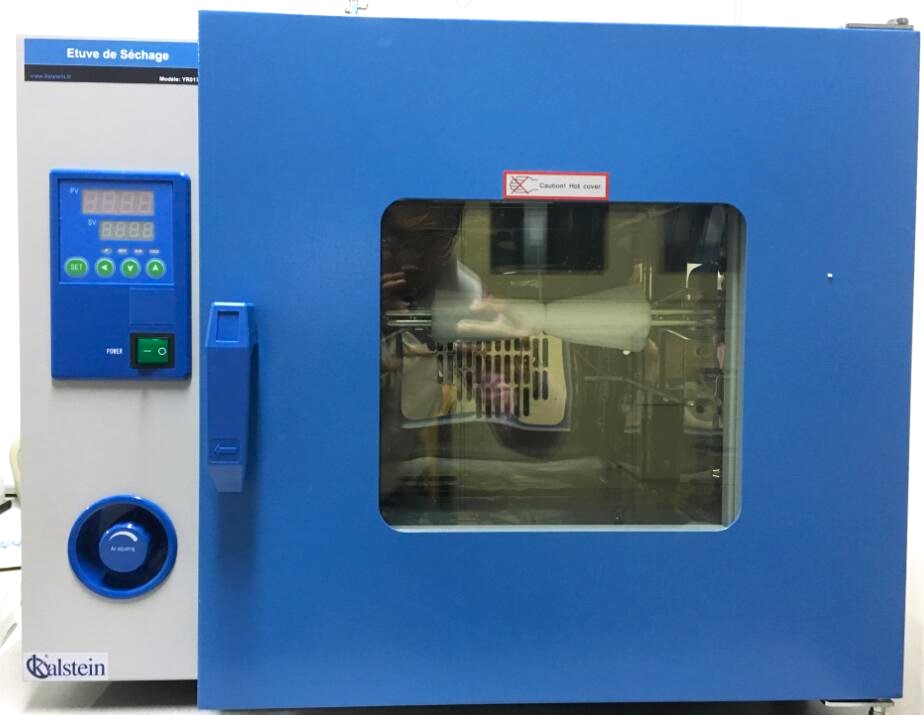Laboratory stoves or also called laboratory ovens are equipment that is used to dry and sterilize different materials and laboratory instruments, as well as to dehydrate reagents. There are generally two types of stoves: those that operate by natural convection and those that operate by forced convection.
These equipments work by increasing its temperature gradually according to its programming, and once the temperature is optimal and stabilizes, the thermal regulator will maintain the temperature; if this decreases, the resistances are activated again to obtain the programmed temperature again. These units have a control panel that shows the regulation point and the actual temperature inside the oven, it is placed in front for easy reading, although some previous models do not have it, they have a graduated knob which regulates the temperature of the equipment. .
Parts of a Laboratory Stove or Oven
- Air circulation system: It is who allows the temperature to be more uniform at all points inside the equipment. Since it controls the temperature with greater precision than with the gravity convection system due to the fact that it homogenizes the interior chamber of the equipment more quickly.
- Heating element: It is the electrically charged structure that is used to create heat, guaranteeing greater control over heating. It is generally composed of a spiral, a strip of wire made of nichrome, which works in a similar way to the filament of a lamp that uses electricity to produce heat, and a ribbon.
- Control Panel: It is the interface that allows us to interact with the programming of the equipment, select the temperature we want in a certain amount of time or establish the cycles that we can enter to achieve the results that are needed.
What material is a laboratory stove or oven made of?
The laboratory stove or oven is manufactured inside and outside with stainless steel material, which provides it with great durability, and has temperature uniformity inside thanks to the presence of a microprocessor. It is usually controlled through a digital manual.
What are the types of drying stoves or ovens?
Natural convection oven: This instrument uses a force of air extracted from the same environment in which the stove is located.
Forced convection oven: this instrument generates forced air, inside the equipment, at room temperature.
How should the cleaning and disinfection of this equipment be?
Cleaning of laboratory stoves or ovens should always be done with the equipment turned off and disconnected from the mains. The periodic cleaning of the inner chamber, made of stainless steel, avoids the formation of remains that in continuous effect can diminish both its appearance and its functionality.
The metal surfaces of the stove can be cleaned with stainless steel cleaners such as soapy water with a soft cloth or gauze. Rinse with distilled water and allow to dry. The control panel, service modules and other plastic parts of the stoves must not be cleaned with cleaning agents containing aggressive products such as solvents.
Avoid introducing rusty or rusty objects in contact with the inner chamber or the stainless steel casing. If rust spots appear on the surface of the working chamber, these should be cleaned and polished immediately.
At Kalstein we are MANUFACTURERS and we offer you innovative laboratory stoves or ovens, designed with the highest quality and the best technology at the best PRICES. That is why we invite you to take a look at: HERE

